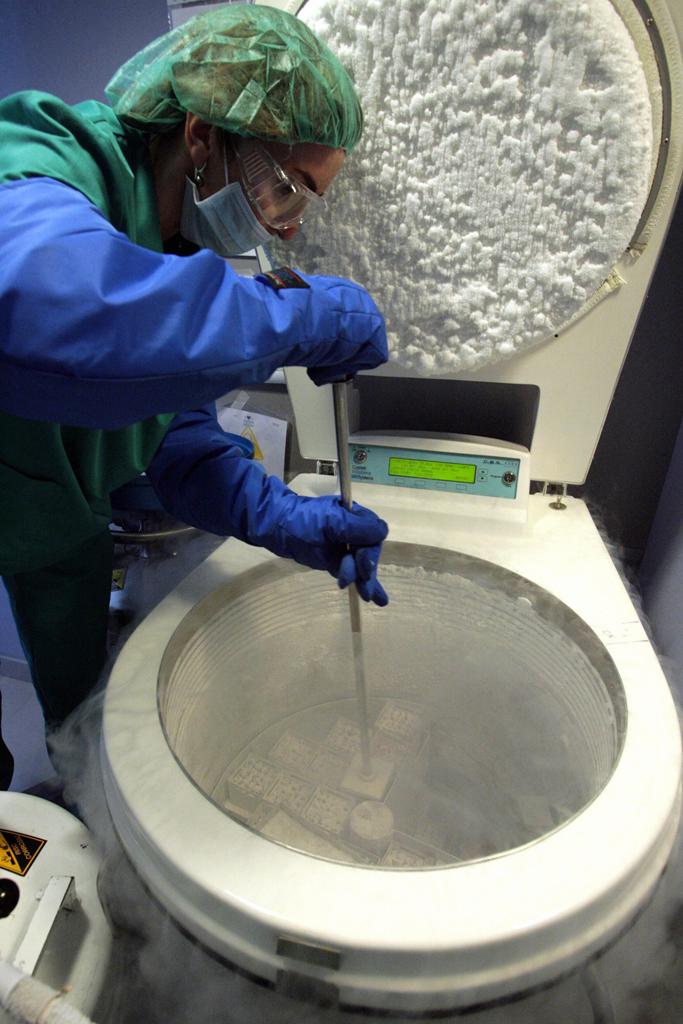Bertold Wiesner, British fertility clinic owner, allegedly fathered 600 children
A doctor takes out preserved semen in liquid nitrogen at the Eugin clinic in Barcelona, a center that specialises in assisted reproduction.
Bertold Wiesner, an Australian biologist who ran a fertility clinic in London that helped over 1,500 women conceive, allegedly fathered 600 children with his own sperm, the Telegraph reported on Monday.
Two men conceived at the clinic — half-brothers Barry Stevens, a Canadian filmmaker, and David Gollancz, a British lawyer — have researched the center, and tests suggest Wiesner provided a significant amount of the clinic's total donated sperm.
Wiesner's clinic was open from 1943 through the mid-1960s, and largely served middle and upper class London couples who were unable to conceive children, the Daily Mail reported. Wiesner and his wife Mary Barton originally intended to use "intelligent" family friends' sperm, but a shortage of donors is believed to have led to Wiesner to provide most of the bank's supply.
More from GlobalPost: Man warned by FDA to stop giving his sperm away for free
In 2007, DNA tests on 18 people conceived at the clinic found that 12 of the group, or two-thirds, were Wiesner’s children, according to the Telegraph.
"It’s rather uncomfortable, because artificial insemination was developed on an industrial scale for cattle and I don’t like the feeling of having been 'bred,'" Gollancz told the Daily Mail. "But meeting the half siblings that I have tracked down has been a very life-enriching experience. This does make it frustrating too, because I know there are all those other siblings out there who I don’t know but would really like to meet. I’d love to be able to hire a huge marquee and invite them all to a party."
Today, laws in the United Kingdom prohibit men from making bulk donations, to eliminate the possibility of two siblings meeting and procreating, the Huffington Post reported. According to the law, sperm donors can provide samples for the creation of up to ten families; parents can choose the same donor for a second or third sibling without being told that donor has reached his limit, according to the Telegraph.
We want to hear your feedback so we can keep improving our website, theworld.org. Please fill out this quick survey and let us know your thoughts (your answers will be anonymous). Thanks for your time!
